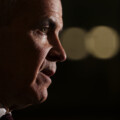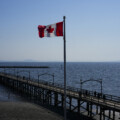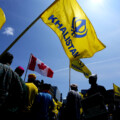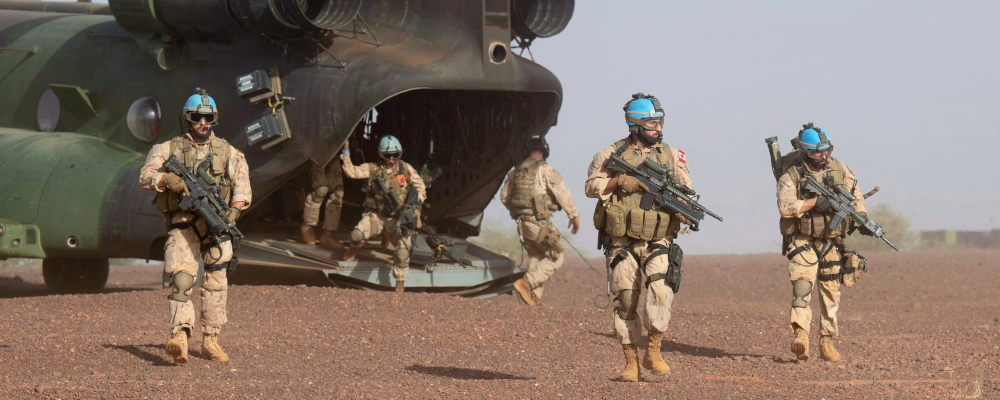The G20 Summit is underway in Indonesia where world leaders will meet for the next few days to discuss the unsettled state of geopolitics. The continuing fallout from the COVID pandemic, war in Europe, financial instability and a looming global recession—uncertainties piled upon uncertainties have brought an uneasy air to the proceedings. More potential threats loom: U.S. President Joe Biden met face-to-face with Chinese leader Xi Jinping yesterday as tensions between the two global superpowers rise over semiconductors, Taiwan, human rights, climate change, and more.
With the world in a precarious place, what assurance do Canadians have that we are well prepared for what may come? When it comes right down to the bedrock considerations of our defence and security, the answer is depressingly little.
The Canadian Armed Forces (CAF) are in crisis. Servicemen and women are leaving the forces in record numbers, and recruits are fewer each year. Opinion surveys show that only small numbers of Canadians would even consider joining the military. And widely reported incidents of sexual misconduct make matters worse.
At the same time, procurement of everything the CAF needs from ships to aircraft to pistols (yes, pistols!) can take years to work their way through the bureaucracy, while costs rise thanks to inflation which always runs higher for military equipment than for ordinary goods.
Anita Anand, the minister of national defence, has a difficult job. Her mandate letter from the prime minister in December 2021 told her that her “immediate priority is to take concrete steps to build an inclusive and diverse Defence Team, characterized by a healthy workplace free from harassment, discrimination, sexual misconduct and violence.” That is a worthy goal, to be sure. But should it be her most important priority?
The CAF is collapsing around her because of a lack of funding, obsolete equipment, and growing shortages of personnel that have reduced infantry battalions to something like half-strength and kept ships at the dock. The chief of defence staff, General Wayne Eyre, has said the manpower shortage is ten thousand men and women. Former CDS, General Rick Hillier, stated that he has heard that the actual number is up to 50 percent higher.
The minister has also imposed new rules on the CAF. There are no longer to be regulations on hair length or colour. Facial piercings and tattoos are to be allowed, and men and women can suit their military clothing to the style they wish. This, DND said in September, “would remove barriers to members’ choice, and promote greater inclusiveness for all members of the CAF.” Male soldiers with green shoulder-length hair wearing skirts? No one will complain—except those men and women in the CAF who believe that discipline is reflected in how soldiers appear. Could anyone seriously believe this travesty would improve recruiting and retention?
Compounding the difficulties has been the war in Ukraine. Canada has been as generous as it can be in supplying military equipment and trainers for the Kyiv government in its fight against Russia. Antitank weapons, artillery and ammunition for the guns, medical supplies, winter clothing—whatever Canada could offer it has given. No one begrudges this, and no one really complains when Bob Rae, the nation’s ambassador to the United Nations, urges Canada to send even more armoured vehicles and artillery. The vast majority of Canadians want to help the Ukrainians survive as an independent nation, and so they should.
To its credit, the government has indicated it will replace the donated materiel. The intention, a DND spokesperson said, was to replace rocket launchers, ammunition, and other items “through the regular procurement process” and ammunition through “the annual replenishment process.” Replacing the ammunition, however, will take two to four years (!) and the regular procurement process, as Canadians know all too well, never takes the predicted time.
Those who hoped that the Fall Economic Statement, delivered on November 4, might steer some funding to the CAF were doomed to be disappointed. Chrystia Freeland, the deputy prime minister and finance minister, has been the leading supporter of Ukraine in the government, and she understands better than anyone in Parliament what Ukrainians are facing. But the war in Ukraine received only one brief mention in her financial update: “Putin’s illegal invasion of Ukraine has transformed geopolitics, reinforcing for our allies the value of turning to each other—to us—for the most critical elements of their supply chains.” She added: “Our allies are counting on us.”
But that was a pitch for Canadian industry and producers of raw materials, not a call for more funding for the Canadian Forces or more aid to Ukraine. The government, Freeland also claimed, was being “prudent” even though it implemented new expensive programs for children, students, and seniors and, she added,” We are keeping our powder dry.”
That is, of course, an old military term dating to the age of muskets when soldiers carried bags of powder they used in loading their weapons. It was the only military term to appear in the economic statement and unintentionally it pointed to the state of the Canadian Armed Forces. Without up-to-date naval vessels, aircraft, drones, artillery, and armoured vehicles, short of trained personnel, and with recruits staying away in droves, we might as well go back to muskets.
Our allies may be counting on us, but they will be disappointed if it comes to war. So will Canadians who may mistakenly assume that our military is ready to fight. It’s not, and it will not be until our government gets serious about defence. Protecting Canada and Canadians is the first duty of every government—but it is not one our current leaders have been able to uphold.
Recommended for You

‘We are not the United States. No one needs to own Canadian bonds’: Rudyard Griffiths and Sean Speer on Canada’s looming debt crisis

DeepDive: Bridging the imagination gap: Why Canadian businesses must rethink AI adoption now

‘Not a guide to practical action’: David Frum on 60 years of George Grant’s Lament for a Nation

Ginny Roth and Brian Dijkema: Why Ontario should allow independent schools and unlock true choice in education



